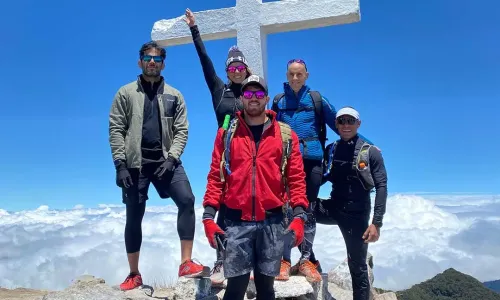Frequently Asked Questions
These are some of the most common asked questions of tourists while considering Panama as their vacation destination.
If you have more questions, feel free to email us or chat with us via whatsapp.
Questions list
Panama is generally a safe country for travelers, but like any destination, it’s important to take common-sense precautions. Stay aware of your surroundings, especially in crowded areas, and keep your belongings secure. It’s also recommended to have travel insurance that covers medical emergencies, trip cancellations, and lost luggage. Having insurance gives you peace of mind and ensures that you’re covered in case of unexpected events.
When flying to Panama, your passport must be valid for at least six months beyond your intended stay. This is a requirement for entry, so it’s crucial to check your passport’s expiration date well in advance of your trip. Most visitors from North America, Europe, and many other regions do not need a visa for short stays of up to 90 days. However, it’s always wise to check the latest visa requirements with your local Panamanian consulate or embassy, as rules can change.
While Panama does not require any vaccinations for entry, it’s recommended that travelers be up-to-date on routine vaccines such as measles, mumps, rubella (MMR), diphtheria, tetanus, and polio. Additionally, the Centers for Disease Control and Prevention (CDC) recommends vaccines for hepatitis A, hepatitis B, and typhoid for most travelers, especially if you plan to visit rural areas or stay for an extended period. If you fly Panama City to Bocas del Toro or the Darién Gap or any rural area, consider taking precautions against malaria and yellow fever as well. Always consult with your healthcare provider or a travel clinic well before your trip to ensure you have the necessary vaccinations and health advice.
The official currency of Panama is the Balboa, which is equivalent to the U.S. dollar. In fact, the U.S. dollar is widely accepted and used for all transactions, so there’s no need to exchange large amounts of money. You’ll see Balboas as coins, as there are no print bills. Coins have same size as American coins so you can use your coins on vending machines without problems. ATMs are readily available in urban areas and tourist destinations, and credit cards are accepted at most hotels, restaurants, and shops. However, it’s a good idea to carry some cash, particularly in smaller denominations, for use in rural areas or small businesses that may not accept cards.
Panama is a diverse country with a mix of cultures and traditions. When visiting, it’s important to respect local customs and practices. Dress modestly, especially when visiting religious sites or rural communities. Panamanians are generally polite and value good manners, so a friendly greeting and showing respect go a long way. Tipping is appreciated, but voluntary. In Panama, typically tips go around 10% in restaurants, though some establishments may include a service charge in the bill.
In Panama there are two airports receiving international flights:
The Tocumen International Airport (PTY) located in Panama City and where almost all international flights arrive and the Scarlett Martínez International Airport (RIH) located in Río Hato, Coclé where smaller aircrafts arrive and it’s close to the Pacific Coast beaches. But it’s most likely that your flight will arrive to Tocumen.
Some international flights arrive to Isla Colón airport coming from Costa Rica and also the Panama Pacífico airport from Colombia.
If you don’t have ground transportation already booked, it’s always a good idea to count with reliable transportation as taxi drivers will charge at least 4 times more than the usual price.
Most restaurants in Panama City and specially in Casco Antiguo will offer Kosher food.
But it’s a different thing in the country or while visiting indigenous communities. In that case, it’s better for you to bring your own.








